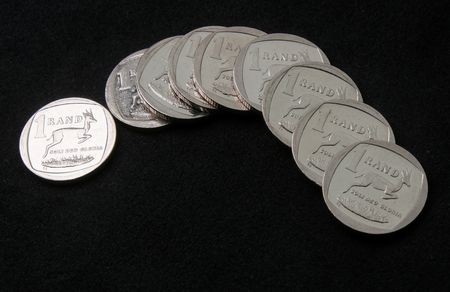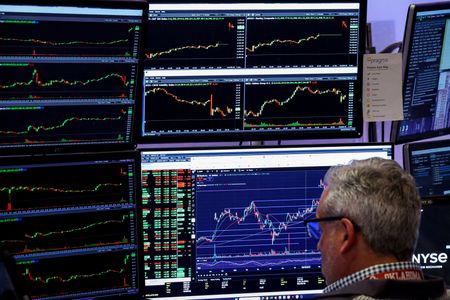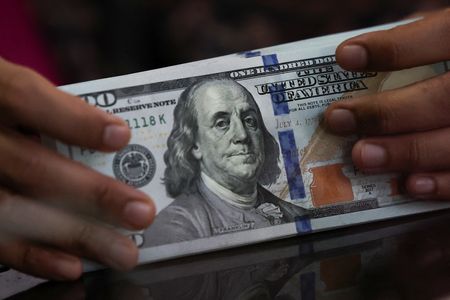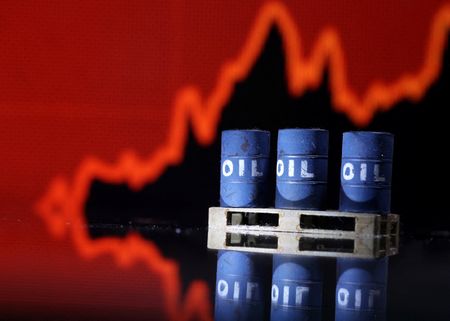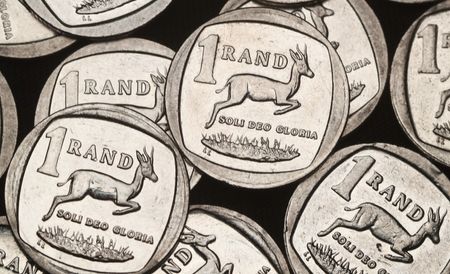By Bhargav Acharya and Sfundo Parakozov
JOHANNESBURG (Reuters) -South African assets remained under pressure on Thursday after being hit by a double-whammy of U.S. President Donald Trump’s announcement of new and higher tariffs and a contentious budget vote that has threatened the ruling coalition’s future.
The risk-sensitive rand traded at 18.76 against the dollar by 1511 GMT. It hit 19.0150 per dollar earlier in the day, its weakest level since mid-January.
On Wednesday, Trump announced a 10% baseline tariff on all imports to the United States, and higher duties on dozens of countries, including South Africa, which was hit with a 31% rate.
Trump said the tariffs were a response to duties and other non-tariff barriers put on U.S. goods.
On the Johannesburg stock market, the Top-40 index closed 3.3% lower.
The cost of insuring South Africa’s debt against default rose to its highest since late April last year, up 16 basis points from Wednesday’s close to reach 254 basis points, according to data from S&P Global Market Intelligence.
South Africa’s presidency said it urgently wanted a new trade deal with the United States.
Major South African exports to the U.S. include vehicles and auto parts, precious stones and metals, iron and steel, machinery and aluminium products and citrus.
“While SA will look to enhance other trading partners, Pretoria’s response also requires long overdue domestic economic policy changes to kickstart growth,” Daniel Silke, director of the Political Futures Consultancy, said in a post on X.
South Africa’s parliament passed the budget’s fiscal framework on Wednesday after weeks of political wrangling, but the second-biggest party in the coalition, the pro-business Democratic Alliance, voted against the measure and on Thursday challenged the outcome in court.
The rand gradually weakened over the course of the day on Wednesday as market fears grew that the alliance may potentially exit the coalition, and went into freefall after the tariff announcement. It slipped as much as 2.6% against the dollar.
“The market celebrated the formation of the GNU (government of national unity), but if it were to collapse, we could see even greater turbulence in asset classes,” said Maarten Ackerman, chief economist at Citadel Investment Services.
(Additional reporting by Libby George in London and Kopano Gumbi in Johannesburg, Editing by Christian Schmollinger and Tomasz Janowski)

